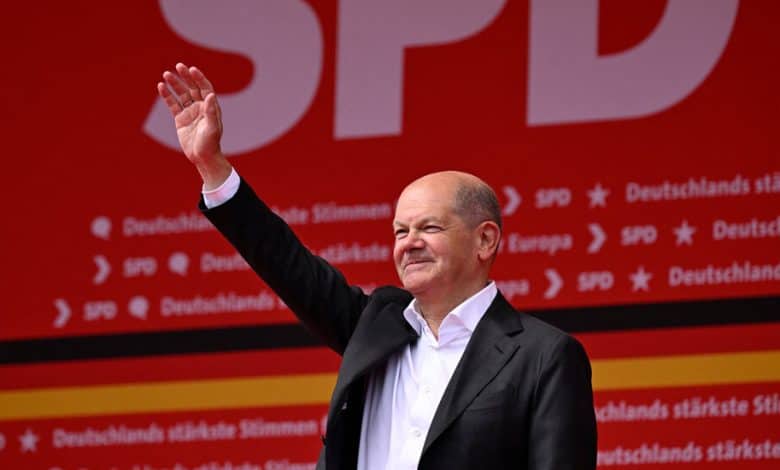In Wake of Election Defeat, Germany’s Weakened Leader Will Slog On

Chancellor Olaf Scholz of Germany heads to the Group of 7 summit meeting in Italy on Thursday as a diminished leader after Sunday’s battering in elections for the European Parliament.
All three of the parties in his coalition government earned fewer votes than the conservative opposition — combined. The far-right Alternative for Germany, or AfD, showed itself to be the country’s second-most popular party.
While an even worse defeat in France for President Emmanuel Macron at the hands of the far right prompted him to call fresh elections for the National Assembly, no such outcome is expected in Germany, where the results reverberate differently.
Here’s a look at why.
Snap Elections Are Rare
Some opposition leaders said the results showed such a lack of confidence in the chancellor and his coalition that he, too, should call new federal elections.
The government replied definitively: no.
The reason could be as simple as the difference between the French and German systems. Whereas President Macron could call a new election for the French Parliament, a new vote in Germany can only happen at the end of a complicated procedure triggered by a parliamentary majority vote of no confidence in the chancellor. That makes snap elections extremely rare in Germany — happening only three times in the 75-year history of the Federal Republic.
While the three parties in the coalition government took a beating on the E.U. level, at home they still have a majority of seats in the German Parliament. As unpopular as the coalition is, then, it is most likely to slog on, and hope that it can turn things around before the next regular federal election in 2025.